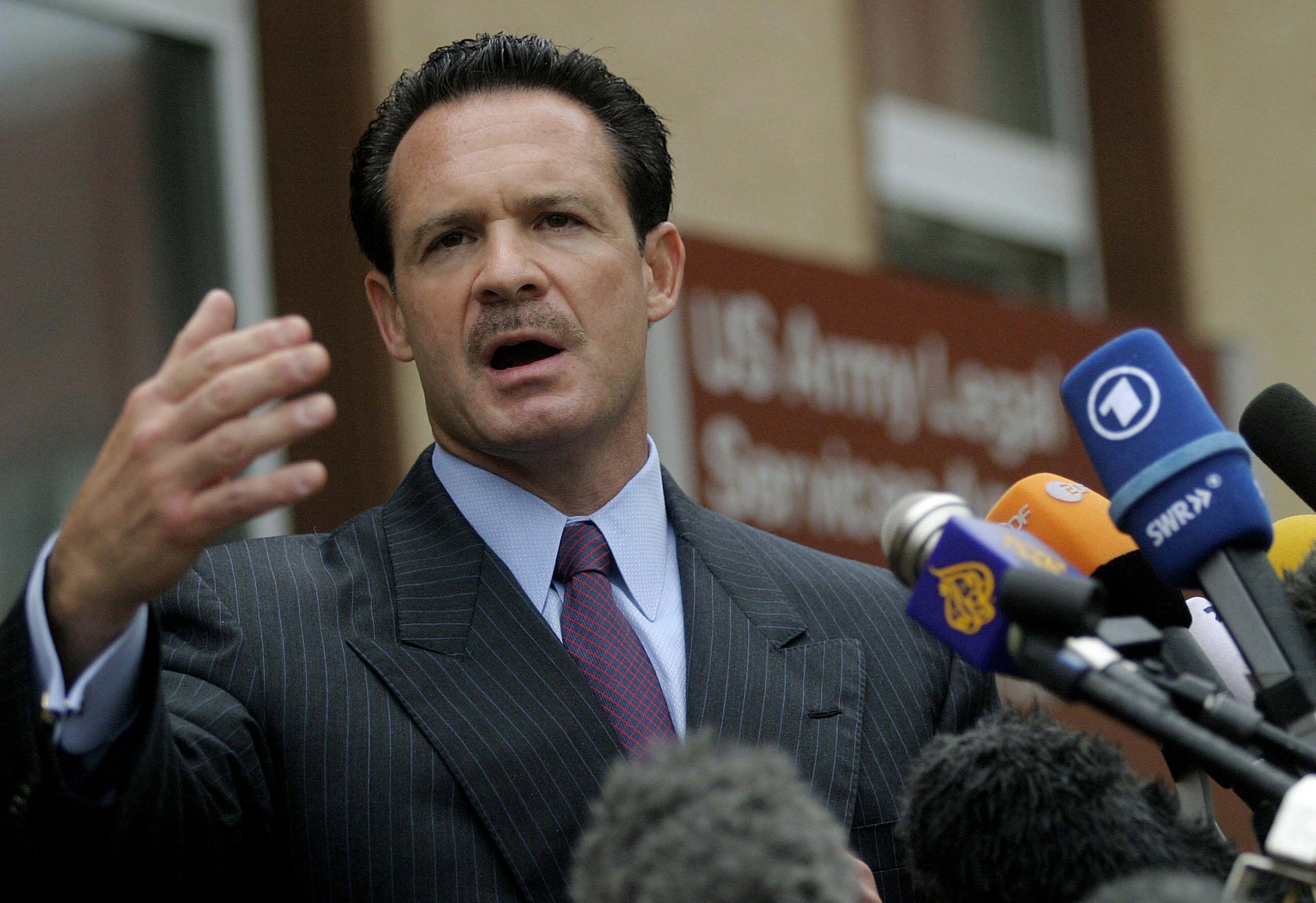Paul Bergrin was a prominent criminal defense attorney in New Jersey whose career took a dramatic and tragic turn from defending the accused to becoming a convicted felon himself. Known for his tenacious advocacy and charismatic persona, Bergrin’s name became infamous after he was implicated in a web of criminal activities, including murder, racketeering, and drug trafficking. His rise and fall serve as a cautionary tale about the blurred lines between legal representation and criminality, and they raise troubling questions about the ethics of legal practice, the pressures faced by lawyers, and the complex intersection of law and crime in the U.S. criminal justice system.
Early Life and Career
Paul Bergrin was born on February 24, 1956, in the United States. Raised in a working-class family, Bergrin aspired to become a lawyer from a young age. He attended the University of Pennsylvania for his undergraduate degree and went on to receive his law degree from Rutgers University School of Law. After passing the bar exam, Bergrin quickly made a name for himself in the New Jersey legal community. His early career was marked by his aggressive defense style and his ability to secure favorable outcomes for his clients, including those charged with serious offenses.
In the 1980s and 1990s, Bergrin gained recognition for his work in defending clients charged with drug-related crimes, organized crime, and violent offenses. He was known for his relentless courtroom tactics, frequently challenging the prosecution’s case and putting the credibility of law enforcement officers under intense scrutiny. His reputation for being a fierce advocate garnered him a steady stream of high-profile clients, including members of organized crime families, drug dealers, and people involved in the underground economy.
During this period, Bergrin cultivated a reputation as a lawyer who would stop at nothing to protect his clients, and his success rate in court made him highly sought after. However, it was also during this time that Bergrin allegedly began to cross ethical and legal boundaries in his professional conduct.
The Rise to Notoriety
While Bergrin’s legal career soared, there were troubling signs of his questionable associations and methods. He became embroiled in the world of organized crime, reportedly using his legal connections to facilitate illicit activities, including drug trafficking, racketeering, and even murder. His ties to criminal figures and his ability to navigate the complex intersection of law and crime led some to question whether Bergrin was simply a lawyer who pushed the limits of the law or whether he had become an active participant in the criminal underworld.
Bergrin’s most high-profile clients during this period were members of the notorious Gambino crime family, one of the most powerful mafia groups in the United States. He represented individuals accused of serious crimes, such as murder, extortion, and drug trafficking, and in some cases, he was able to get these clients acquitted or have their charges reduced. His legal strategies often involved attacking the credibility of witnesses, creating doubt in the minds of jurors, and using every legal loophole at his disposal to delay or derail prosecutions.
Despite his success in court, Bergrin’s conduct began to attract attention from federal authorities. In the early 2000s, law enforcement officials began to investigate Bergrin for his possible involvement in illegal activities beyond the scope of his legal representation. Their suspicions were based on reports of Bergrin’s interactions with known criminals, including allegations that he was helping them with activities such as money laundering and drug distribution.
In addition to his legal work, Bergrin was also accused of using his law practice as a cover for criminal enterprises. One of the most notorious cases that came to light was his alleged involvement in the murder of a witness who was scheduled to testify against one of Bergrin’s clients. The killing was thought to be part of a broader scheme to obstruct justice and prevent the prosecution of organized crime figures.
The Federal Investigation and Charges
In 2009, the federal government took decisive action against Paul Bergrin. He was arrested and charged with a series of serious offenses, including racketeering, murder for hire, obstruction of justice, and drug trafficking. These charges stemmed from a lengthy investigation into Bergrin’s activities, which involved wiretaps, undercover agents, and surveillance. Prosecutors alleged that Bergrin was involved in running a criminal enterprise that used his law office as a front to further illegal activities.
One of the key allegations against Bergrin was that he had orchestrated the murder of a witness who had been cooperating with authorities in a case against a member of the Gambino family. According to prosecutors, Bergrin had arranged for the killing to prevent the witness from testifying and to protect his client from prosecution. This murder-for-hire charge was one of the most serious to be leveled against him.
In addition to the murder-for-hire charge, Bergrin faced numerous other counts related to his alleged involvement in drug trafficking, racketeering, and money laundering. Federal authorities claimed that Bergrin used his legal connections to help clients engage in illegal activities without fear of prosecution. They also suggested that Bergrin had been acting as a fixer, using his influence in the legal system to manipulate outcomes in favor of his criminal clients.
Bergrin’s arrest shocked the legal community, as he had long been seen as a formidable force in New Jersey’s criminal defense bar. However, the charges against him painted a picture of a man who had become deeply entangled in criminal activity, using his legal knowledge and connections to further his own illicit interests.
Trial and Conviction
Paul Bergrin’s trial began in 2011, and it quickly became one of the most high-profile legal cases of the decade. The prosecution painted a damning picture of Bergrin as a ruthless criminal mastermind who had used his position as a lawyer to facilitate murder, drug trafficking, and organized crime. They presented evidence of Bergrin’s involvement in various criminal activities, including wiretapped phone conversations, testimony from former associates, and financial records that suggested he was profiting from his illegal dealings.
During the trial, Bergrin maintained his innocence, arguing that the charges against him were based on fabricated evidence and false testimony. He claimed that the government was targeting him because of his success as a criminal defense attorney and his ability to secure favorable outcomes for his clients. He also suggested that his reputation as a tough, no-nonsense lawyer had made him a target for law enforcement agencies looking to make an example out of him.
Despite Bergrin’s defense, the jury found him guilty of multiple charges, including murder for hire, racketeering, and obstruction of justice. He was sentenced to a lengthy prison term, and his once-promising career came to an abrupt and tragic end. Bergrin’s conviction was a significant moment in the ongoing debate over the role of criminal defense attorneys in the justice system and the ethical boundaries that lawyers should be expected to observe.
Appeal and Further Legal Battles
After his conviction, Bergrin and his defense team immediately filed an appeal, arguing that the trial had been unfair and that key evidence had been excluded. They also claimed that Bergrin’s constitutional rights had been violated during the investigation and trial process. However, despite these efforts, Bergrin’s conviction was upheld by the appeals court in 2014, and his legal options began to dwindle.
In the years following his conviction, Bergrin continued to fight the charges, but his efforts to secure a retrial or reduced sentence were unsuccessful. In 2017, Bergrin was moved to a federal prison in Pennsylvania to serve his sentence. His case became a symbol of the dangers of crossing the line between legal practice and criminal activity, and it prompted many legal professionals to reflect on the potential ethical pitfalls of defending clients who are involved in organized crime or other illicit activities.
The Legacy of Paul Bergrin
The story of Paul Bergrin is one of contrast: from a respected criminal defense attorney who represented some of the most notorious figures in the New Jersey underworld, to a convicted felon who stands as a cautionary tale for the legal profession. His case raises important questions about the responsibilities of lawyers and the ethical dilemmas that arise when defending individuals who are accused of serious crimes. It also underscores the complex relationship between law and crime in American society, where the line between criminal defense and criminal involvement can sometimes become dangerously thin.
For many, Bergrin’s story is a reminder of the potential consequences of unethical behavior within the legal profession. While criminal defense attorneys are tasked with providing robust representation for their clients, they are also bound by ethical guidelines that prohibit them from engaging in criminal conduct themselves. Bergrin’s downfall illustrates the dangers of becoming too close to the criminal clients one is meant to represent and the severe consequences that can result from breaching those ethical lines.
Ultimately, Paul Bergrin’s career serves as a sobering reminder that the pursuit of justice can be easily compromised when lawyers place personal gain and loyalty to their clients above the law. His case highlights the importance of maintaining the integrity of the legal profession and serving as a check against the abuse of power by those entrusted with the responsibility of upholding justice.
Conclusion
Paul Bergrin’s story is a tragic and complex one, encompassing elements of success, ambition, moral failure, and legal peril. His journey from a respected attorney to a convicted felon illustrates the dangers of blurred ethical boundaries and the precarious balance between legal defense and criminal complicity. Bergrin’s fall from grace serves as a stark reminder that no one is immune from the consequences of criminal behavior, no matter how successful or influential they may be in their professional life. His case continues to resonate in legal circles, raising essential questions about the ethics of lawyering and the lengths to which some may go to protect their clients—even if it means breaking the law.












+ There are no comments
Add yours